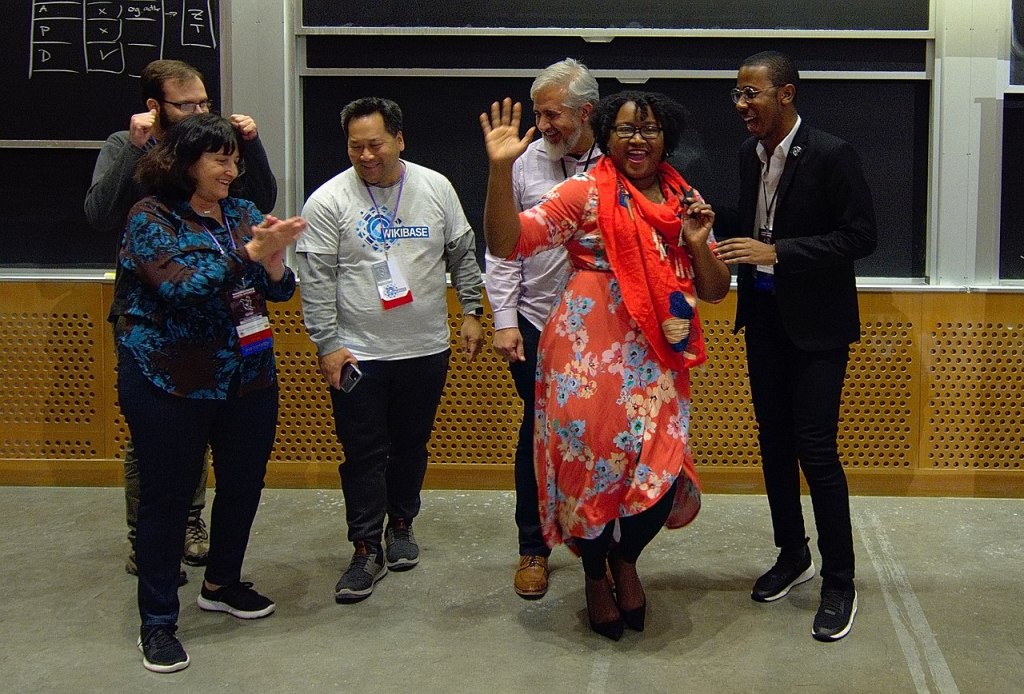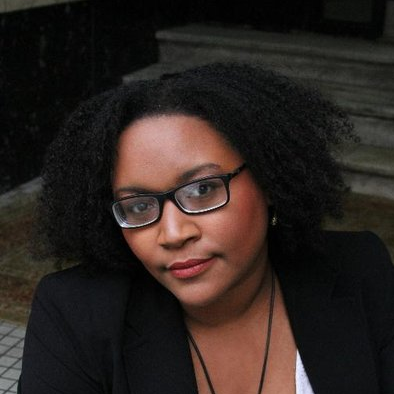
December 14
My name is Sherry Antoine, I’m the program director of AfroCROWD. I think among its meanings, Knowledge Equity means equal access and inclusion for all who pursue knowledge and its curation, creation, and presentation. That includes literal access to the technology that makes Wikipedia possible in the most remote areas of the world regardless of background (who you are) or foreground (where you are, what you have).
During my time directing programming of AfroCROWD, which, founded by Alice Backer, has been around since 2015, we have grown from the local New York City area, all over the United States, with organizers in Europe and partners in Africa and the Caribbean. I am also the lead organizer of the new “Wikimedians of the Caribbean User Group”. Forming in late 2018, and becoming a user group in the spring, “Wiki Cari” as we call it, has already presented or held events around the world. In both groups, Wikimedians of the Caribbean as well as AfroCROWD, we are working on making the most of each opportunity to continually expand and connect the Wikimedia community in the world.

AfroCROWD endeavors to increase awareness of the Wikimedia and free knowledge, culture, and software movements among potential editors of African descent. Since its launch during Black Wiki History Month in 2015, we have organized edit-a-thons, translatathons, oral knowledge events, and presentations on Wikimedia projects like Wikipedia, Wikimedia Commons, and Wikidata. We have also created a series of YouTube Tutorials in English and soon Spanish and French, to help organizers and others learn and share their knowledge. In 2017, we started our work on the first “oral history recordathon” with Columbia University and Wikitongues. We also collaborated with Laguardia Community College in Queens, New York to help pioneer the first Wikipedia translatathon.
With Wikimedians of the Caribbean, we aim to expand knowledge of the Caribbean and its diaspora online by connecting groups on the ground with experts in the Wikimedia community. We also work with organizational partners. We recently partnered with Microsoft in Puerto Rico for example. The aim is to build Wikimedia movement capacity and community on the islands and in their Diasporas. Along with Puerto Rico, we have also held training in places like Dominica, Trinidad, and Jamaica, as well as online.
The Wikimedians of the Caribbean have aimed to break down existing barriers. It would be great to continue the good work already begun to continue closing the “access gap”. This means improving awareness of the Wikimedia community in the first place, like in the Caribbean which in the past has – literally – not been on the Wiki map both in representation and on maps of the world at Wikimedia events. This is one of the reasons Wikimedians of the Caribbean have endeavored to locate potential Wikipedians in the region.
Finally, in order to achieve knowledge equity, we can’t move forward without continuing to work on systemic bias. Groups like AfroCROWD are aiming to improve representation and awareness. Until 2030 and beyond, it would be good to continue connecting, listening and supporting each other. This includes those who are trying to improve access to communities that are historically on the margins.
I think making Wikimedia truly global means not only getting all countries involved and represented but all ethnicities, cultures, races and gender identities involved and represented – or at least aware that they are welcome on the platform. With these two groups (AfroCROWD and Wikimedians of the Caribbean), as well as the partners and great volunteers we get to work with, we are trying to help nurture this development and in some cases, plant the seed for it.
You want to know more?
- Afrocrowd.org
- “Women leading movements to champion equality on Wikipedia” on womenintheworld.com

Can you help us translate this article?
In order for this article to reach as many people as possible we would like your help. Can you translate this article to get the message out?
Start translation